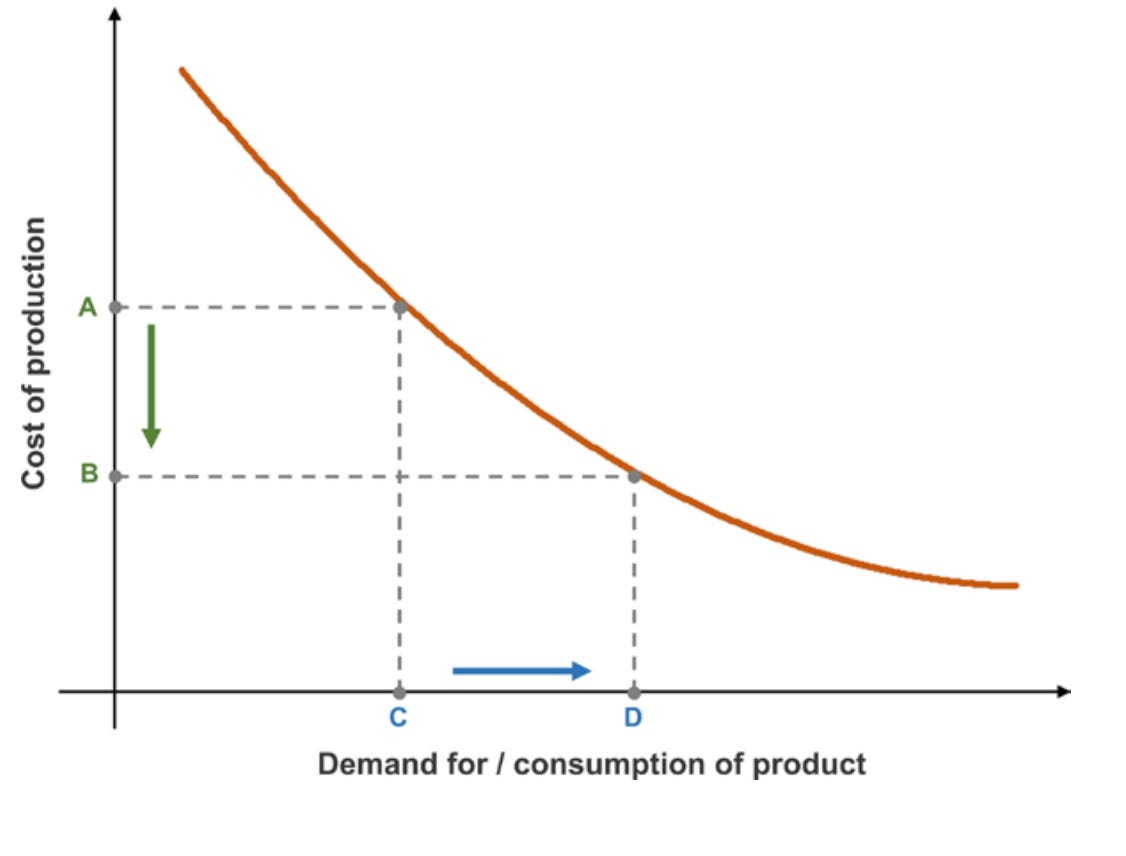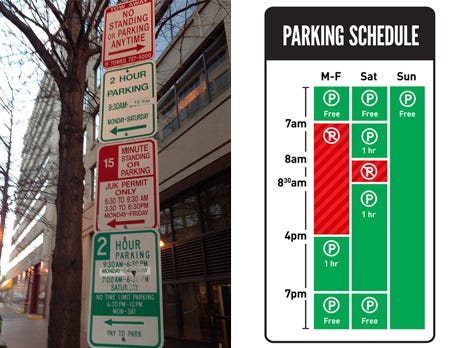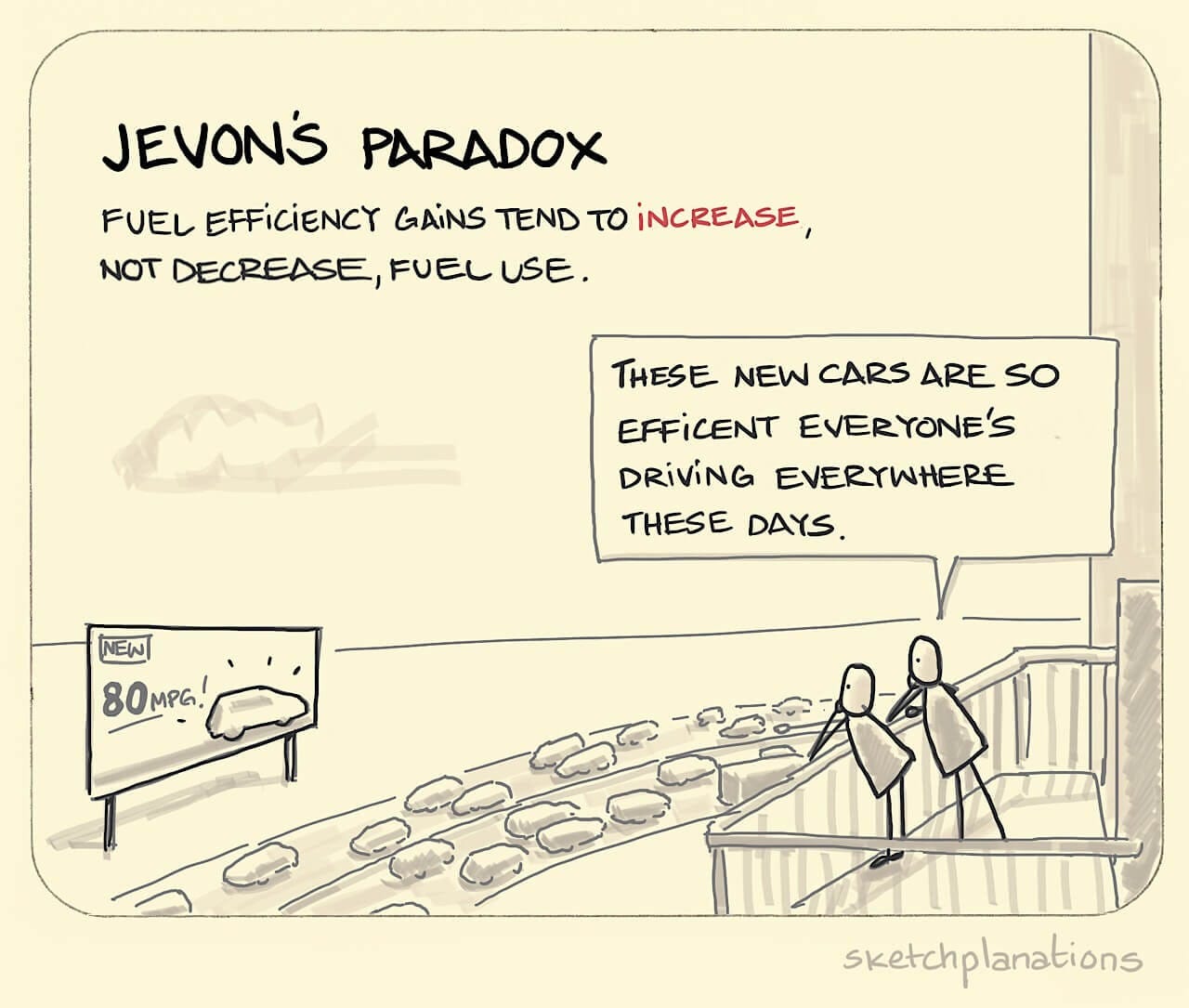Jevon’s Paradox and a world of spiraling complexity
Creeping bureaucracy and unnecessarily complex laws are an ill of our time: both in governments and organizations. Those able to mitigate this will run circles around others who cannot.

To appreciate one of the consequences of technological advancement, Jevon’s Paradox is important to understand. In brief: William Stanley Jevons, a 19th-century economist, theorized that as technological innovations lead to more efficient use of resources, paradoxically, the overall consumption of those resources increases. A simple comic I found on the site ‘Sketchplanations’ illustrates:
Jevon’s Paradox posits that as we make progress, the world can become more intricate. In the case of information systems we create to navigate the world, this paradox becomes even more apparent. Twitter user atroyn asks an important question, of what happens when the ever-expanding universe of knowledge leads to greater complexity?
The fractal nature of intelligence
As we focus our growing computational capabilities to unravel the complexities of the world, we often discover that the more we know, the more there is to know. This phenomenon resembles a fractal, where intricate patterns repeat at different scales. The more we explore, the more we realize how deeply interconnected everything is. This is why all the talk around legislation of systems we don’t fully understand should give us pause for concern.
Bureaucracy and complex laws
"Excessive laws are like the spider's web: if some light and feeble thing falls into them, it is held fast, but if a stronger thing comes in, it breaks the cords and makes its way through."
– Anacharsis
If we do nothing, the sprawling world of digital intelligence may manifest as a nightmare of complex laws and bureaucratic processes designed to manage and control the unprecedented flow of information. Just as Jevon’s Paradox predicts that technological efficiency leads to increased resource consumption, it might also suggest that heightened intelligence brings forth more intricate and demanding legal and administrative systems. And we’re already doing this now, even if not yet supercharged by AI. GDPR and the DMCA already make the internet worse, to the point of breaking it for many. All just to appease some lawyers and draconian politicians. What if that’s just the start?
Waking up from the nightmare
To navigate this world of intelligence, we must embrace complexity without being overwhelmed by it. Any laws or bureaucratic processes in our organizations that arise should be designed with adaptability and simplicity in mind. Rather than stifle innovation, they should encourage it. If we don’t do this, we risk very bad outcomes including but not limited to frustrating and losing our best creative talent.
Let’s take a look at a visual example to solidify this in our minds using something everyone understands: parking rules. With more complex and increasing use of streets a necessary part of modernity, what if we also updated poorly enacted signage to something re-thought from the perspective of the user? Great UX here is in effect an entropy-reverser.

Another potential solution to the parking sign problem is visual AI. Although, the assumption you have a certain app in order to park and need to open it and type is still inferior for this specific use case, we can imagine applications it would be useful (ie taxes, which everyone hates doing and are simply a waste of collective intelligence). I would still rather just have more clear signage here like the above.
"Simplicity is the ultimate sophistication." – Leonardo da Vinci
In the pursuit of greater intelligence and understanding, Jevon’s Paradox reminds us that complexity is an ever-present companion to most things in the world. You for sure have opportunities to simplify ornate processes and rules in your own organizations. We get more software and tech tools that are supposed to make things faster, but they can easily add more busywork that makes us less efficient and simply creates more red tape or boxes to check, applied incorrectly. We create onboarding processes for new team members that are overwhelming during a time they are already emotionally overwhelmed. We make it impossibly difficult for customers to get the service they need or even figure out how to contact you. You can think of more examples here, I’m sure.
To overcome these challenges, we must harness the power of simplicity and think through issues from first principles, as well as be unafraid of tearing something up because it’s become unwieldy or makes no sense. Respecting your users and teams also involves not frustrating them with unnecessary complexity for complexity’s sake.





There's a reason they say KISS - keep it simple stupid! We are inundated with information and complexity nowadays, and that is costing us mentally, emotionally, and economically.